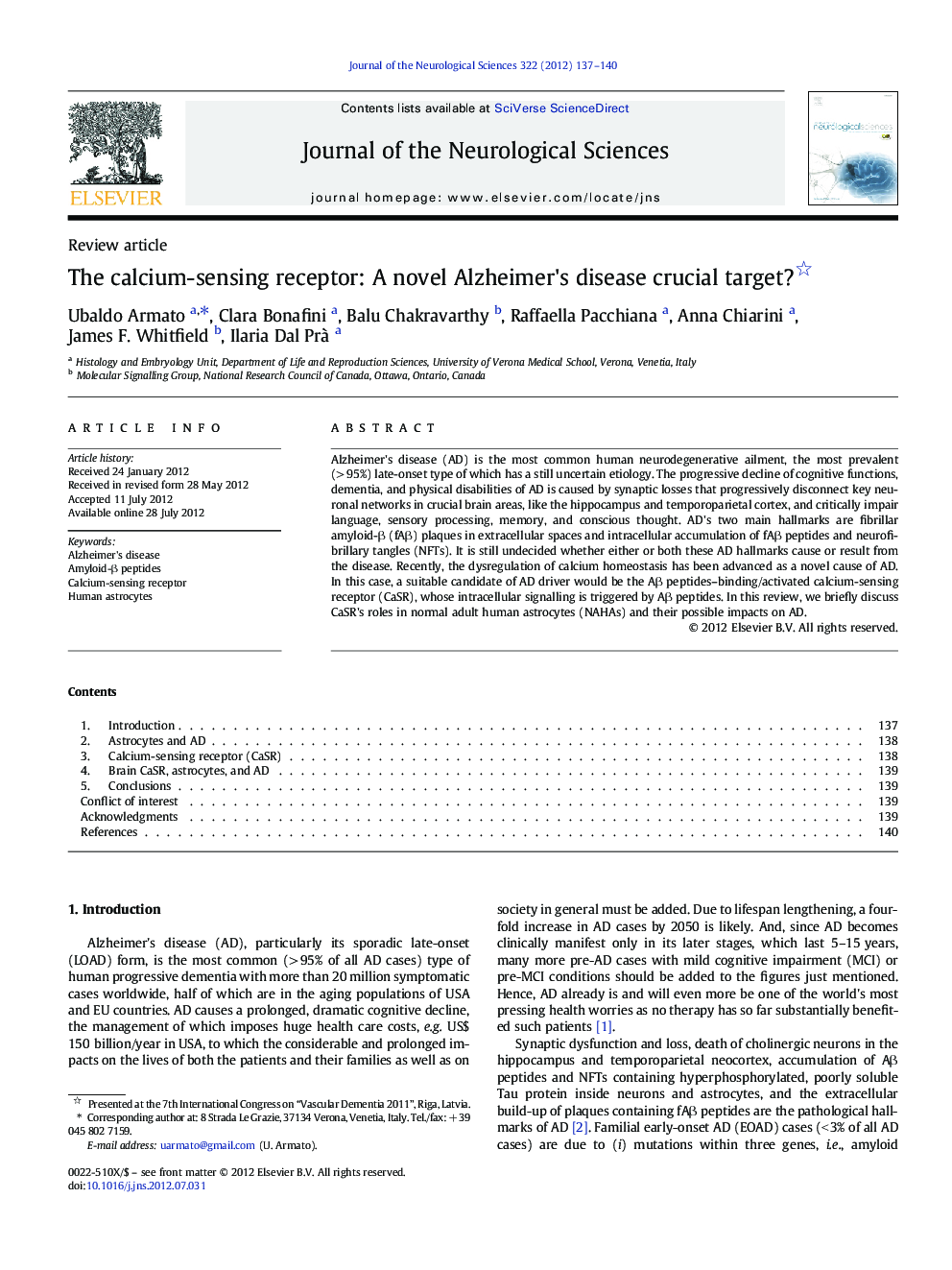| کد مقاله | کد نشریه | سال انتشار | مقاله انگلیسی | نسخه تمام متن |
|---|---|---|---|---|
| 8280112 | 1535140 | 2012 | 4 صفحه PDF | دانلود رایگان |
عنوان انگلیسی مقاله ISI
The calcium-sensing receptor: A novel Alzheimer's disease crucial target?
دانلود مقاله + سفارش ترجمه
دانلود مقاله ISI انگلیسی
رایگان برای ایرانیان
کلمات کلیدی
موضوعات مرتبط
علوم زیستی و بیوفناوری
بیوشیمی، ژنتیک و زیست شناسی مولکولی
سالمندی
پیش نمایش صفحه اول مقاله

چکیده انگلیسی
Alzheimer's disease (AD) is the most common human neurodegenerative ailment, the most prevalent (> 95%) late-onset type of which has a still uncertain etiology. The progressive decline of cognitive functions, dementia, and physical disabilities of AD is caused by synaptic losses that progressively disconnect key neuronal networks in crucial brain areas, like the hippocampus and temporoparietal cortex, and critically impair language, sensory processing, memory, and conscious thought. AD's two main hallmarks are fibrillar amyloid-β (fAβ) plaques in extracellular spaces and intracellular accumulation of fAβ peptides and neurofibrillary tangles (NFTs). It is still undecided whether either or both these AD hallmarks cause or result from the disease. Recently, the dysregulation of calcium homeostasis has been advanced as a novel cause of AD. In this case, a suitable candidate of AD driver would be the Aβ peptides-binding/activated calcium-sensing receptor (CaSR), whose intracellular signalling is triggered by Aβ peptides. In this review, we briefly discuss CaSR's roles in normal adult human astrocytes (NAHAs) and their possible impacts on AD.
ناشر
Database: Elsevier - ScienceDirect (ساینس دایرکت)
Journal: Journal of the Neurological Sciences - Volume 322, Issues 1â2, 15 November 2012, Pages 137-140
Journal: Journal of the Neurological Sciences - Volume 322, Issues 1â2, 15 November 2012, Pages 137-140
نویسندگان
Ubaldo Armato, Clara Bonafini, Balu Chakravarthy, Raffaella Pacchiana, Anna Chiarini, James F. Whitfield, Ilaria Dal Prà ,